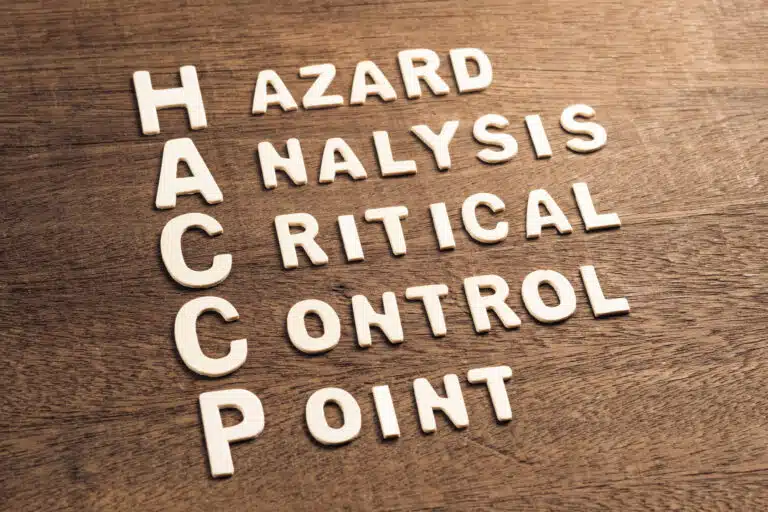Table of Contents
- Introduction
- What are SALSA Standards?
- Why SALSA Standards Matter
- Key SALSA Requirements
- Steps to Achieve SALSA Certification
- How Skilltopia’s Courses Support SALSA Compliance
- Benefits of SALSA Certification
- Frequently Asked Questions
- Get Started with Skilltopia
Introduction
For small and medium-sized UK food businesses, achieving high food safety standards is essential to build trust, meet legal requirements, and access larger markets. The SALSA (Safe and Local Supplier Approval) standards provide a recognised certification scheme tailored for smaller producers, suppliers, and manufacturers. SALSA certification demonstrates compliance with rigorous food safety and quality standards, opening doors to contracts with retailers and wholesalers. Skilltopia’s CPD-certified online courses, including Food Hygiene Levels 1–3, Food Allergy Awareness, and HACCP Levels 2–3, equip businesses with the knowledge to meet SALSA requirements. This comprehensive guide explores what SALSA standards are, their importance, and how to achieve certification, with practical steps and training solutions from Skilltopia. Enrol at skilltopia.co.uk/buy-courses to start your journey towards SALSA compliance.
What are SALSA Standards?
SALSA, or Safe and Local Supplier Approval, is a UK-based food safety certification scheme designed for small and medium-sized food businesses, such as producers, processors, and packers. Launched in 2007, SALSA is supported by the Food Standards Agency (FSA) and major trade bodies like the British Retail Consortium (BRC). It provides an affordable alternative to complex certifications like BRCGS, focusing on:
- Food safety: Ensuring safe production, handling, and storage practices.
- Quality management: Maintaining consistent product quality.
- Legal compliance: Aligning with the Food Safety Act 1990 and Regulation (EC) No 852/2004.
- Traceability: Tracking ingredients and products through the supply chain.
SALSA audits assess areas like HACCP, staff training, premises hygiene, and allergen management, ensuring businesses meet both regulatory and retailer standards. Certification is recognised by major UK retailers, making it a valuable credential for businesses in competitive markets like London or Manchester.
Why SALSA Standards Matter
SALSA certification offers significant advantages for UK food businesses:
- Market access: Opens doors to supply contracts with supermarkets, wholesalers, and food service providers.
- Legal compliance: Ensures adherence to UK food safety laws, reducing the risk of fines (up to £5,000).
- Customer trust: Demonstrates a commitment to safety and quality, boosting reputation.
- Competitive edge: Differentiates small businesses from uncertified competitors.
- FSA alignment: Prepares businesses for FSA hygiene ratings and Environmental Health Officer (EHO) inspections.
- Cost efficiency: Reduces waste and safety incidents, saving money long-term.
Skilltopia’s CPD-certified courses help businesses meet SALSA’s rigorous standards through comprehensive training.
Key SALSA Requirements
SALSA standards cover several critical areas to ensure food safety and quality. Key requirements include:
- HACCP System: A documented Hazard Analysis and Critical Control Points plan to identify and manage risks (e.g., biological, chemical, allergen hazards).
- Staff Training: All staff must be trained in food hygiene and safety, appropriate to their roles.
- Premises and Equipment: Facilities must be clean, well-maintained, and designed to prevent contamination.
- Allergen Management: Compliance with Natasha’s Law for pre-packed for direct sale (PPDS) foods, with clear labelling of the 14 allergens.
- Stock Control: Use of First In, First Out (FIFO) to manage stock rotation and prevent spoilage.
- Temperature Control: Monitoring cooking, cooling, and storage temperatures (e.g., fridges at 0–5°C, freezers at -18°C).
- Traceability: Systems to track ingredients and products from supplier to customer.
- Pest Control: Measures to prevent infestations, such as sealed bins and professional services.
- Record-Keeping: Detailed logs for HACCP, training, cleaning, and temperature checks.
Skilltopia’s Food Hygiene Level 2 and HACCP courses cover these requirements, ensuring your team is audit-ready.
Steps to Achieve SALSA Certification
Achieving SALSA certification involves preparation, training, and auditing. Follow these steps:
- Understand SALSA Requirements. Review the SALSA standard (available at salsafood.co.uk) to identify gaps in your current practices. Focus on HACCP, training, and premises standards.
- Train Your Staff. Ensure all staff are trained to meet SALSA’s food safety and hygiene requirements:
- Food Hygiene Level 1: For support staff (e.g., packers, cleaners), covering basic hygiene (2–4 hours).Food Hygiene Level 2: For food handlers, addressing temperature control, allergens, and stock rotation (6–8 hours).Food Hygiene Level 3: For managers, covering HACCP and compliance (18–24 hours).Food Allergy Awareness: Ensures compliance with allergen labelling and communication.HACCP Level 2 and 3: Guides staff and managers in creating and monitoring safety systems.
- Implement a HACCP System. Develop a HACCP plan tailored to your business:
- Identify hazards (e.g., bacteria, allergens).Determine critical control points (e.g., cooking, storage).Set limits (e.g., cook to 75°C, store at 0–5°C).Monitor and document processes.
- Maintain Clean Facilities. Ensure premises meet SALSA standards:
- Adopt a Clean As You Go policy to keep surfaces and equipment sanitised.Implement pest control measures.Maintain proper ventilation and drainage.
- Manage Allergens. Comply with Natasha’s Law and prepare for potential Owen’s Law requirements:
- Label PPDS foods with the 14 allergens.Use separate equipment to prevent cross-contamination.Train staff to communicate allergen risks.
- Implement FIFO and Traceability. Use a First In, First Out (FIFO) system and ensure traceability:
- Rotate stock to use older items first.Label items with delivery and expiry dates.Maintain supplier and batch records.
- Monitor Temperatures. Use calibrated thermometers to ensure safe temperatures:
- Cook foods to required temperatures (e.g., poultry at 75°C).Maintain fridges at 0–5°C and freezers at -18°C.
- Conduct a Pre-Audit Check. Perform an internal audit to verify:
- HACCP plan implementation.Staff training completion.Facility cleanliness and pest control.Accurate record-keeping.
- Apply for the SALSA Audit. Contact SALSA to schedule your audit (salsafood.co.uk). Ensure all records and systems are ready for review.
- Maintain Certification. After certification, conduct annual reviews and refresher training every 3 years. Skilltopia’s courses make this process seamless.
How Skilltopia’s Courses Support SALSA Compliance
Skilltopia’s online courses, certified by The CPD Certification Service, prepare your team for SALSA certification:
- Food Hygiene Level 1: Covers basic hygiene for support staff (1-2 hours).
- Food Hygiene Level 2: Teaches food handlers temperature control, allergen management, and FIFO (4-6 hours).
- Food Hygiene Level 3: Equips managers with HACCP and audit skills (1-12 hours).
- Food Allergy Awareness: Ensures compliance with Natasha’s Law and allergen communication.
- HACCP Level 2 and 3: Guides staff and managers in creating SALSA-compliant safety systems.
Starting at £12.50, our courses are affordable, flexible, and provide instant certificates. Contact hello@skilltopia.co.uk for bulk discounts or enrol at skilltopia.co.uk/buy-courses.
Benefits of SALSA Certification
Achieving SALSA certification offers:
- Increased sales: Access to retailers and wholesalers seeking certified suppliers.
- Enhanced reputation: Builds trust with customers and partners.
- Improved safety: Reduces risks of foodborne illnesses and recalls.
- Cost savings: Minimises waste and penalties through efficient systems.
- EHO readiness: Aligns with FSA standards, easing inspections.
Frequently Asked Questions
Who needs SALSA certification?
Small and medium-sized food producers, processors, and packers seeking to supply retailers or wholesalers.
Is SALSA mandatory?
No, but it’s often required by major buyers and supports compliance with UK food safety laws.
How long does SALSA certification take?
Preparation can take weeks to months, depending on your current systems. Skilltopia’s courses speed up the process.
Are Skilltopia’s courses sufficient for SALSA?
Yes, our CPD-certified courses cover all SALSA training requirements.
Get Started with Skilltopia
SALSA certification can elevate your food business, ensuring safety and market access. Skilltopia’s CPD-certified online courses provide the training needed to achieve and maintain compliance. Enrol at skilltopia.co.uk/buy-courses or email hello@skilltopia.co.uk for tailored solutions.
Skilltopia is your trusted provider of CPD-certified online food hygiene training for UK businesses. Achieve SALSA certification with confidence!






